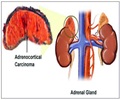A new study has found that older men can get only limited benefits from testosterone supplements.
Dr. Marielle H. Emmelot-Vonk, a researcher at the Netherlands-based University Medical Center Utrecht, revealed that older men with low testosterone levels were randomly administered testosterone supplements during the study.It was found that testosterone supplementation helped increase lean body mass and decreased body fat among the experimental group.
However, it neither made the subjects stronger nor improved their mobility or cognition, compared to their counterparts in the placebo group.
“Male aging is associated with a gradual but progressive decline in serum levels of testosterone, occurring to a greater extent in some men than in others. Decline in testosterone is associated with many symptoms and signs of aging such as a decrease in muscle mass and muscle strength, cognitive decline, a decrease in bone mass, and an increase in (abdominal) fat mass,” write authors of the study, published in JAMA.
The trial, conducted from January 2004 to April 2005, included 207 men between the ages of 60 and 80 years. Participants were randomly assigned to receive 80 mg of testosterone undecenoate or a matching placebo twice daily for six months.
The researchers found that by the end of the study, 47.8 percent subjects in the testosterone group, while 35.5 percent in the placebo group, had the metabolic syndrome—a strong risk factor for cardiovascular disease and type 2 diabetes.
Advertisement
Adverse events were not significantly different in the two groups. Testosterone supplementation was associated with an increase in the concentrations of blood creatinine, a measure of kidney function, and hemoglobin and hematocrit, two red blood cell measures.
Advertisement
“This study is, as far as we know, the largest study of testosterone supplementation with the most end points and a randomised, double-blind design. Adherence was high and the dropout rate was low,” the authors write.
“The findings in this study do not support a net benefit on several indicators of health and functional and cognitive performance with 6 months of modest testosterone supplementation in healthy men with circulating testosterone levels in the lower range,” they add.
Source-ANI
LIN/M









